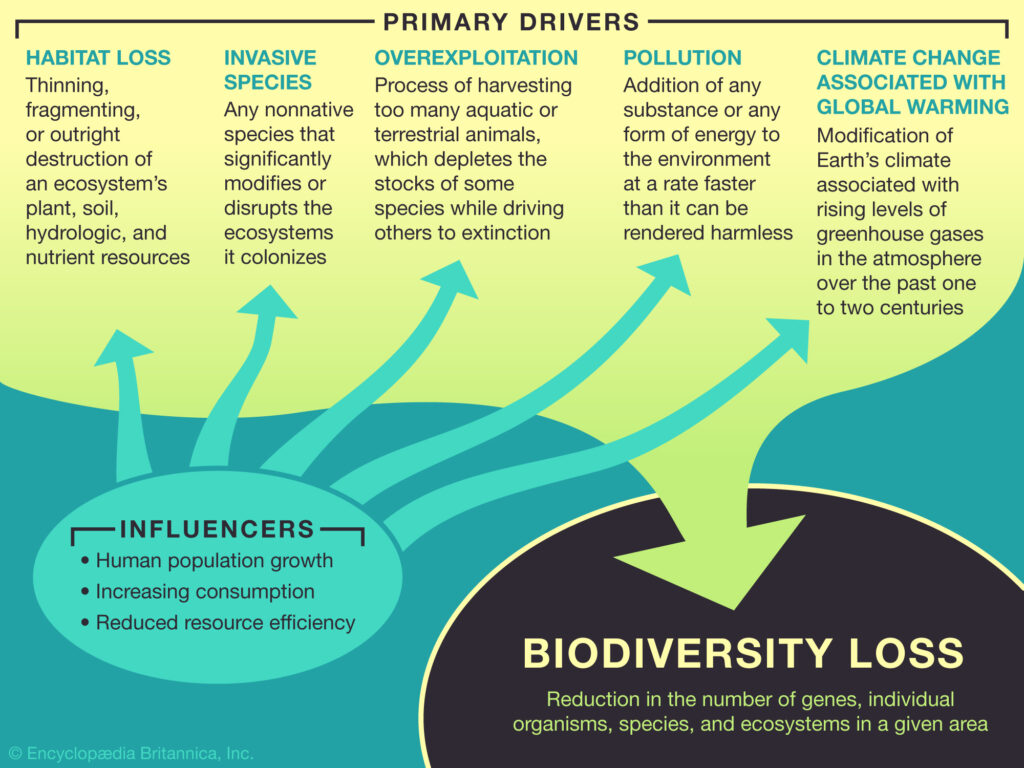Climate change is a global phenomenon that affects every aspect of life on earth, including biodiversity. Biodiversity refers to the variety of living organisms on the planet, including animals, plants, fungi, and microorganisms. It is essential for maintaining the functioning of ecosystems and providing important ecosystem services such as pollination, nutrient cycling, and carbon sequestration. However, climate change is causing significant biodiversity loss, with potentially catastrophic consequences for the planet’s ecosystems and human societies.
The Intergovernmental Panel on Climate Change (IPCC) has warned that the current rate of climate change is unprecedented in human history. The Earth’s average temperature has already risen by 1°C since pre-industrial times, and is projected to rise by 1.5°C to 4.5°C by the end of this century if carbon emissions are not reduced. This warming is causing changes in the distribution and abundance of species, as well as alterations in ecosystem processes such as nutrient cycling, water availability, and wildfire frequency.
Climate change is causing biodiversity loss in several ways. One of the most significant is through changes in the timing of seasonal events such as flowering, migration, and hibernation. As temperatures warm, many species are shifting their seasonal activities earlier in the year. This can cause mismatches between the timing of key ecological interactions such as pollination and seed dispersal, which can have cascading effects on ecosystems.
Another way that climate change is causing biodiversity loss is through the loss and fragmentation of habitat. As temperatures warm and rainfall patterns change, many species are moving to cooler and wetter areas. However, many habitats are already fragmented by human development, making it difficult for species to move and adapt to new conditions. This can lead to local extinctions and a loss of genetic diversity within populations.
Climate change is also increasing the frequency and intensity of extreme weather events such as droughts, floods, and wildfires. These events can have devastating effects on ecosystems, causing mass mortality of species, habitat destruction, and soil erosion. In addition, extreme weather events can alter ecosystem processes such as nutrient cycling, which can have long-lasting effects on ecosystem functioning.
The loss of biodiversity caused by climate change has significant implications for human societies. Biodiversity loss can reduce the availability of ecosystem services such as food, water, and clean air, as well as increase the risk of disease outbreaks and natural disasters. In addition, biodiversity loss can reduce the resilience of ecosystems to future climate change, making them vulnerable to further degradation.
Conservation efforts are urgently needed to address the loss of biodiversity caused by climate change. One approach is to reduce greenhouse gas emissions, which is essential for limiting global warming and reducing the impacts of climate change on biodiversity. This can be achieved through a range of measures such as increasing energy efficiency, promoting renewable energy, and reducing deforestation.
Another approach is to protect and restore habitats for species that are vulnerable to climate change. This can involve creating corridors and other connections between habitats to allow species to move and adapt to new conditions. In addition, protected areas can be established to safeguard habitats and species that are at risk.
Conservation efforts can also involve the use of assisted migration and other forms of genetic management to help species adapt to changing conditions. Assisted migration involves moving species to new locations that are better suited to their needs and can be a valuable tool for conserving biodiversity in the face of climate change.
In conclusion, climate change is causing significant biodiversity loss with potentially catastrophic consequences for ecosystems and human societies. Urgent conservation efforts are needed to address this crisis, including reducing greenhouse gas emissions, protecting and restoring habitats, and using assisted migration and other forms of genetic management. These efforts are essential for safeguarding biodiversity and ensuring the resilience of ecosystems in the face of future climate change.










